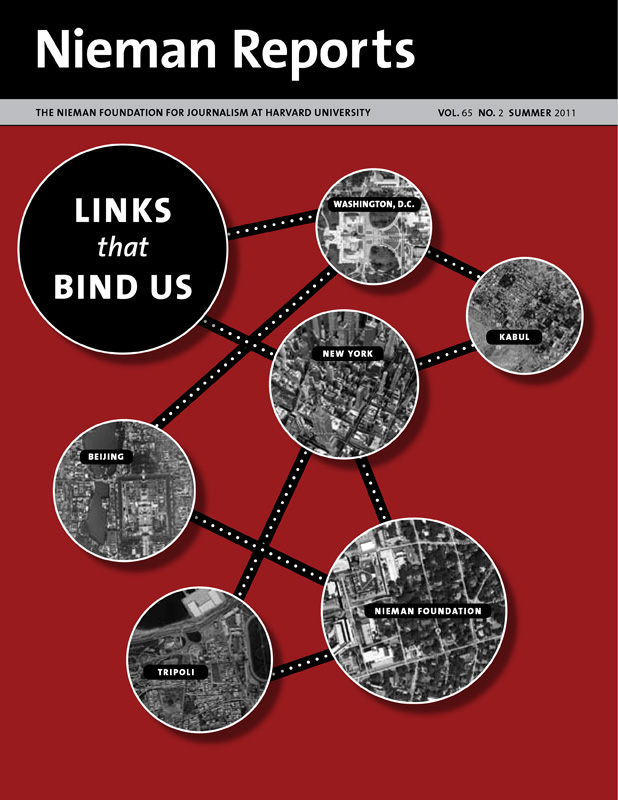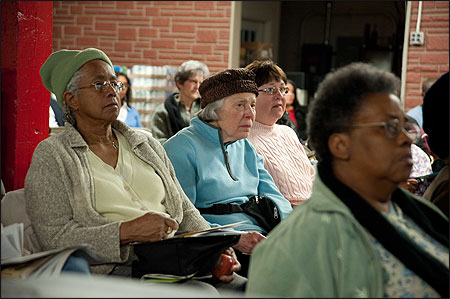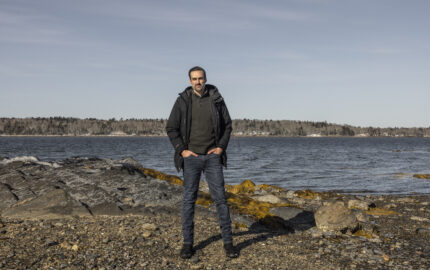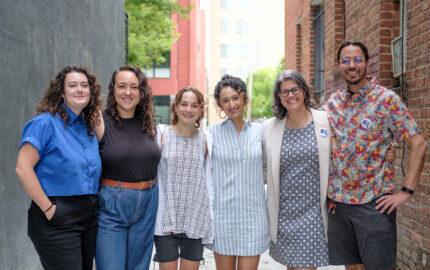
Links that Bind Us
In digital space, journalists are proving to be a powerful force in creating, nurturing and engaging communities. No longer serving only geographic zones, they confront the fragmentation of audience and the need to attract and retain “eyeballs.” Their efforts to embrace and interact with communities are fueled by an instinct to survive. Habits and hobbies, interests and values, political leanings, and sports allegiances are the grist of community formation. Discover the various roles journalists are assuming and how the links we share bind us.

Detroit’s challenges hold the attention of those who reside in its 143 square miles. Photo by Ellen Jacob.
RELATED ARTICLES
“Focusing a New Kind of Journalism on a City's Needs”
- Bill Mitchell
“A Promising Collaboration of Place, Time and Niche”
- Lynette Clemetson
“Advertising as Storytelling—So News Stories Can Be Told”
- Kirk Cheyfitz Why is New Detroit, an urban leadership coalition, teaming up with Detroit143? My Detroit143 partners are journalists. I'm a former banker, and New Detroit is a coalition of leaders from business, labor, government and religious and community organizations. New Detroit got started in the summer of 1967 after the violence that erupted in our city exposed deep racial barriers that persist today. So why are we—disparate entities, each with a seemingly different mission—banding together to create a different sort of news venture?
I admit that I had some misgivings about teaming up with journalists in this Detroit143 collaboration. The work New Detroit does in winding our way through differences and forming a consensus on sensitive, sometimes painful issues is usually best done away from the spotlight. The focus of journalists is on uncovering information and laying it out and letting facts fall where they may. So I was concerned that getting involved in a journalistic endeavor could jeopardize what we do.
On the other hand, the reason New Detroit was created more than four decades ago is the very reason why it is important for the Detroit143 collaborative to be created. From day one we have tried to come up with strategies that address this country's most intractable problem: race relations. That remains a monumental task. We continually confront versions of Detroit's history based on myths and legends that have too often and too widely become accepted as fact. Yet a highly inaccurate history impedes efforts to turn the city and region around because misinformation or a lack of information cannot be the basis for effective community action.
New Detroit ultimately is about bringing diverse parts of the community together to take action in our common interest. This difficult mission requires, as a first condition, a common understanding of the problems to be overcome. This means that New Detroit is vitally interested in providing people with the kind of common understanding and shared knowledge that empowers a community to take concerted, democratic action.
Through the years we have created a number of programs to develop a more fundamental understanding of "The Origins of the Urban Crisis," to borrow the title of a groundbreaking look at Detroit's history by historian Thomas J. Sugrue. But those programs have never achieved the wide audience that I believe can be reached through journalistic endeavors.
Detroit143 grew out of a daylong symposium, "Taking Charge of Our Story," that New Detroit cosponsored in early 2010 and was devoted to building understanding of the core factors of Detroit's current dilemma. That experience became the seed for Detroit143, whose goal is to create an economically viable, professionally rigorous journalistic model that will tell multidimensional contemporary stories of a city now in the process of reinventing itself for the 21st century. As that process unfolds, an informed public must feel fully engaged—with voices heard, views respected—in discussions and decisions that determine what happens next.
Detroit143 is grounded in the belief that journalism can be a part of the solution. Its founders believe that by fully covering the issues involved with resizing and reshaping the city and assuring that all people are heard and informed, we will enable residents to constructively engage in the rebuilding process.
So why are we collaborating with Detroit143? Because we believe this journalistic initiative is critical to charting our city's future. Because I trust that this venture—directed by veteran journalists with a proven track record of in-depth coverage of complex issues involving race and urban affairs—can help to build new levels of understanding in this city and region.
Shirley Stancato is president and CEO of New Detroit.


